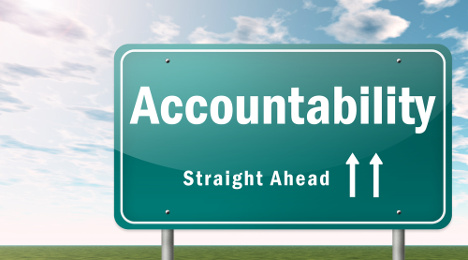How ‘cheating’ inside & outside of auto industry is bringing swift actions

By subscribing, you agree to receive communications from Auto Remarketing and our partners in accordance with our Privacy Policy. We may share your information with select partners and sponsors who may contact you about their products and services. You may unsubscribe at any time.
CARY, N.C. –
Autotrader senior analyst Michelle Krebs scanned several recent headlines, which included a Volkswagen engineer pleading guilty for his role in a conspiracy to cheat U.S. emissions tests as well as Wells Fargo agreeing to a record fine from the Consumer Financial Protection Bureau. Krebs then arrived at a succinct conclusion.
“The feds are cracking down hard on companies for cheating of all kinds as of late,” she said in a message to media outlets, including Auto Remarketing.
According to a press release from the Department of Justice, Volkswagen engineer James Robert Liang pleaded guilty on Friday for his role in a nearly 10-year conspiracy to defraud U.S. regulators and the automaker’s U.S. customers by implementing software specifically designed to cheat U.S. emissions tests in hundreds of thousands of Volkswagen “clean diesel” vehicles.
Justice Department officials said Liang’s plea agreement provides that he will cooperate with the government in its ongoing investigation.
Liang, of Newbury Park, Calif., pleaded guilty today to one count of conspiracy to defraud the United States, to commit wire fraud and to violate the Clean Air Act. He was indicted under seal on June 1 by a federal grand jury, and the indictment was unsealed on Friday.
According to the plea agreement, from 1983 until May 2008, Liang was an employee of VW, working in its diesel development department in Wolfsburg, Germany. Liang admitted that beginning in about 2006, he and his co-conspirators started to design a new “EA 189” diesel engine for sale in the United States According to Liang’s admissions, when he and his co-conspirators realized that they could not design a diesel engine that would meet the stricter U.S. emissions standards, they designed and implemented software to recognize whether a vehicle was undergoing standard U.S. emissions testing on a dynamometer or being driven on the road under normal driving conditions (the defeat device), in order to cheat the emissions tests.
Subscribe to Auto Remarketing to stay informed and stay ahead.
By subscribing, you agree to receive communications from Auto Remarketing and our partners in accordance with our Privacy Policy. We may share your information with select partners and sponsors who may contact you about their products and services. You may unsubscribe at any time.
Officials said Liang admitted that he used the defeat device while working on the EA 189 and assisted in making the defeat device work. In May 2008, Liang moved to the United States to assist in the launch of VW’s new “clean diesel” vehicles in the U.S. market, according to the plea agreement. While working at VW’s testing facility in Oxnard, Calif., he has held the title of leader of diesel competence.
According to the plea agreement, employees of VW and its U.S. subsidiary met with the EPA and the California Air Resources Board (CARB) to seek the certifications required to sell each model year of its vehicles to U.S. customers. Liang admitted that during some of these meetings, which he personally attended, his co-conspirators misrepresented that VW diesel vehicles complied with U.S. emissions standards and hid the existence of the defeat device from U.S. regulators.
Jack Nerad, executive editorial director and executive market analyst for Kelley Blue Book’s KBB.com, asked a question after seeing the Justice Department’s announcement.
“The guilty plea by Volkswagen engineer James Liang begs the question: will there be other indictments in the case? By his own testimony, Liang didn’t work alone, so there is a strong possibility of other indictments and possibly a conspiracy indictment that could affect a much broader swath of VW engineers and management,” Nerad said.
“The question remains how high on the executive chain the investigation will discover wrongdoing,” he continued. “At the same time, this scandal has evolved into criminal proceedings, the car-buying public has demonstrated few changes in behavior toward the Volkswagen brand in the United States.
“Given the short memory of the buying public, the scandal is unlikely to have far-reaching effects on VW sales, but for the moment it is a major distraction,” Nerad continued.
Meanwhile a couple of days earlier, the CFPB handed out a $100 million penalty to Wells Fargo for activities not related to auto financing — rather, what the regulator deemed to be “widespread illegal practice of secretly opening unauthorized deposit and credit card accounts.”
Spurred by sales targets and compensation incentives, the bureau said employees boosted sales figures by “covertly” opening accounts and funding them by transferring funds from consumers’ authorized accounts without their knowledge or consent, often racking up fees or other charges.
Krebs summarized the events this way:
“(The) plea by a Volkswagen engineer involved with the diesel emissions cheating scandal — unlikely the last plea we’ll see from this debacle — comes on the heels of Wells Fargo firing 5,300 employees for setting up phony bank accounts and the revelation that Fiat Chrysler executive Reid Bigland is being investigated for possibly cheating on sales reports,” she said.
“These events should serve as a warning to all companies to make sure they are operating on the up-and-up, because the feds are showing no mercy,” Krebs went on to say.


